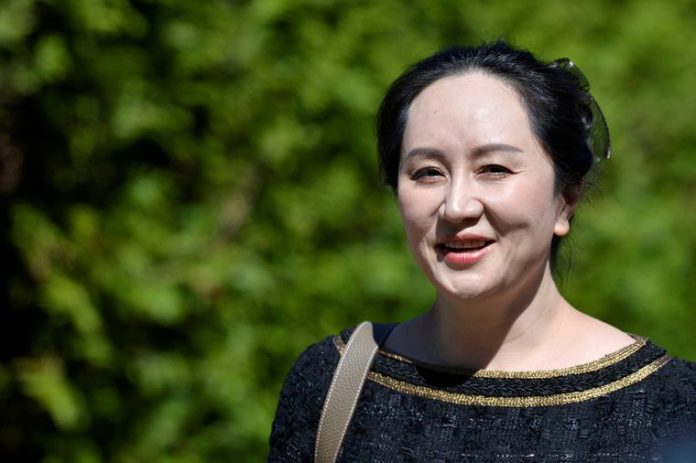Huawei Chief Financial Officer Meng Wanzhou’s lawyers accused the United States of using her as a bargaining chip in negotiations with China, and misleading the Canadian government and courts with distorted facts, local media reported Friday.
Meng’s lawyers have alleged “abuse of process” by the U.S. government and are “seeking a stay of extradition proceedings,” according to Canadian newspaper The Globe and Mail.
The lawyers cited U.S. President Donald Trump’s comments that he would “certainly intervene” in the Meng case if it would help get a better trade deal with China, the report said.
“These proceedings have been poisoned. They can no longer be reasonably regarded as fair, regardless of the undoubted good faith of the court,” according to the lastest court filing of Meng’s lawyers.
Meng was arrested by the Royal Canadian Mounted Police on Dec. 1, 2018 at Vancouver International Airport at the request of the United States, which is seeking her extradition on fraud charges.
Both Meng and Huawei have repeatedly denied any wrongdoing.
In the court filings, Meng’s lawyers “challenged key elements of the U.S. case against her,” flagging several instances in which the United States has distorted the facts, the report said, adding that the team questioned “documents submitted by U.S. prosecutors to describe the evidence supporting the American extradition request.”
The United States “has improperly tailored” the record of the case against Meng “to support its theory of criminal liability,” according to the court filings.
Meng’s lawyers also cited a statement by Canadian Prime Minister Justin Trudeau in December “to bolster her argument that the U.S. extradition effort is tainted,” according to the report.
In December, Trudeau revealed that he had asked Trump “to not cut a final trade deal with China until there was a resolution in the cases of Meng and the two Canadians,” it said.
The comments imply that Trudeau “has communicated to the United States that he supports its use of Meng’s case as a bargaining chip in trade negotiations,” the report quoted Meng’s legal team as saying.
Trudeau’s statements reinforce how Meng is “caught in a geopolitical battle, not the slightest bit dependent on the merits of her criminal case,” the filings added.
On May 27, the Canadian British Columbia Supreme Court ruled on the so-called “double criminality” in the case of Meng, holding that the U.S. extradition request against Meng conforms to the principle of “double criminality.”
Chinese Foreign Ministry spokesperson Zhao Lijian said later in May that China expresses its strong dissatisfaction and firm opposition to the Canadian court’s ruling on the case against Meng, and has made solemn representations to Canada on the issue.
“This is a serious political incident that Canada acted as an accomplice to the U.S. government’s efforts to bring down Chinese high-tech enterprises and Huawei,” Zhao said.
































